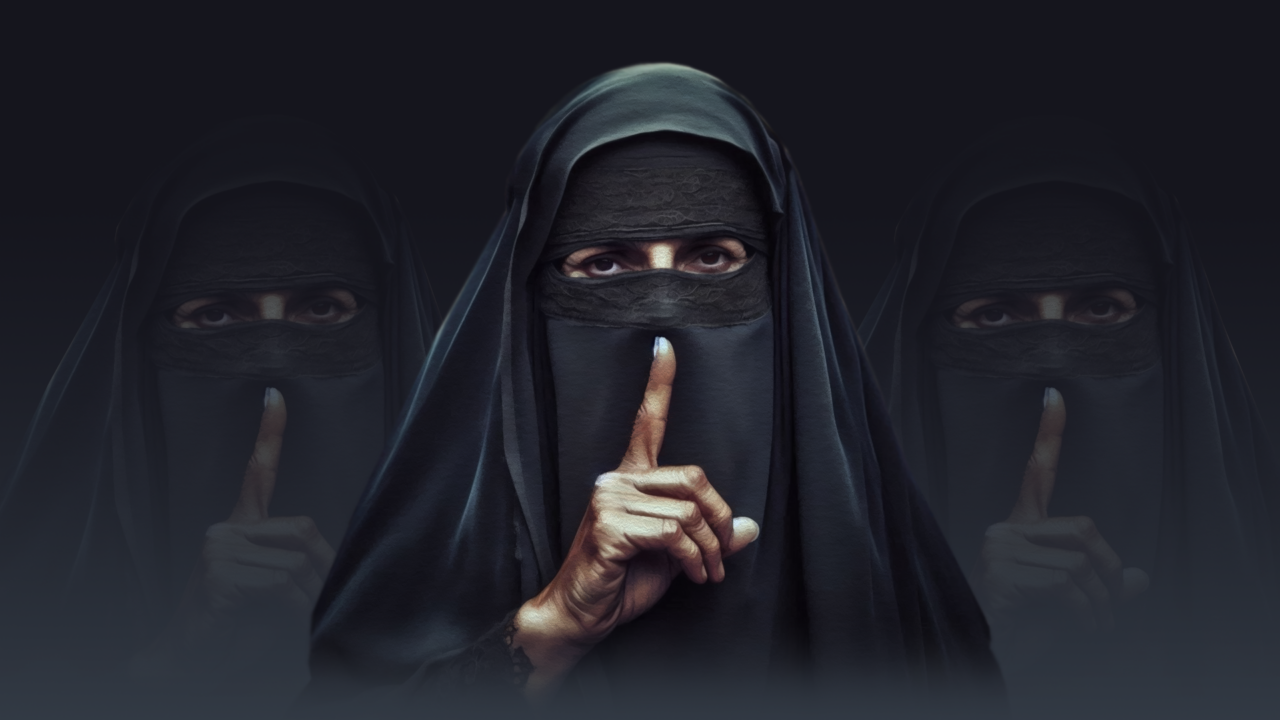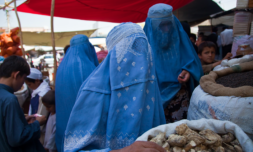Taliban de facto authorities have established a new ban, preventing women from hearing other women’s voices.
At the end of August, the Taliban introduced the Virtue and Vice law, imposing strict regulations on everyday life in Afghanistan, from transportation to personal celebrations and basic freedoms.
Article 13, in particular, drew international condemnation for its restrictive measures on women. It forbids them from making eye contact with men outside their family or spouse, speaking loudly, or singing – even within their own homes.
Zohal Azra, co-founder of Huma Media, told news.com.au that she struggled to imagine a situation worse than the Taliban’s recent prohibition that took place in August.
Alarmingly, the circumstances continues to deteriorate.
On Saturday, the regime implemented a bizarre new law prohibiting women from hearing other women’s voices.
This message itself was in audio format due to the Taliban’s censorship on broadcasting living beings on television.
According to The Daily Telegraph, ‘the Minister for Promoting Virtue and Preventing Vice’, Khalid Hanafi, stated in his message, ‘Even when an adult woman prays and another woman passes by, she must not pray loudly enough for the other to hear.’
The legislation’s ambiguity has raised concerns among exasperated Afghan women and international communities, who fear it could extend to silencing even private conversations.
A woman from Herat province shared with The Daily Telegraph, ‘They want us to disappear, and there’s nothing we can do about it.’
There is some hope, however. Countries like Canada, Germany, Australia, and the Netherlands are actively working to hold the regime accountable for their systematic discrimination against women.
International responses
Since August, policymakers and international organizations have taken meaningful steps to find solutions.
In September 2024, the UN expressed its solidarity with Afghan women, and Meryl Streep used her platform to raise global awareness of their struggles.
Canada, Germany, Australia, and the Netherlands also announced plans to take the Taliban de facto authorities to international court over gender discrimination.
Fawzia Koofi, former Deputy Speaker of the Afghan Parliament, addressed Afghan women, saying, ‘It’s a battle, and we will win’ from the side event of the UN General Assembly.
Meanwhile, the European Parliament passed three resolutions on the human rights conditions in Afghanistan, calling on the EU to recognize gender apartheid as a crime, according to KabulNow, a newspaper established by Afghan intellectuals in exile.
While these actions are not solely a response to global outcry, we cannot overlook the impact of international organizations like End Gender Apartheid, Amnesty, Human Rights Watch, and the courageous voices of the Afghan people.
Afghan women are defying the Taliban’s ban on women speaking in public by singing out loud. Let’s stand with them and support their powerful voices.pic.twitter.com/4BpeT5jEDN
— Habib Khan (@HabibKhanT) August 27, 2024




















